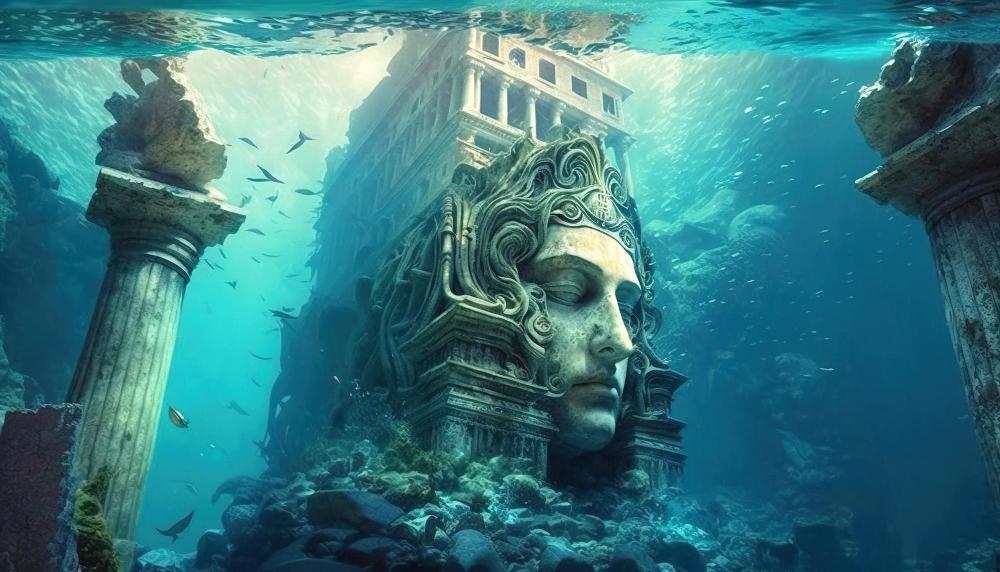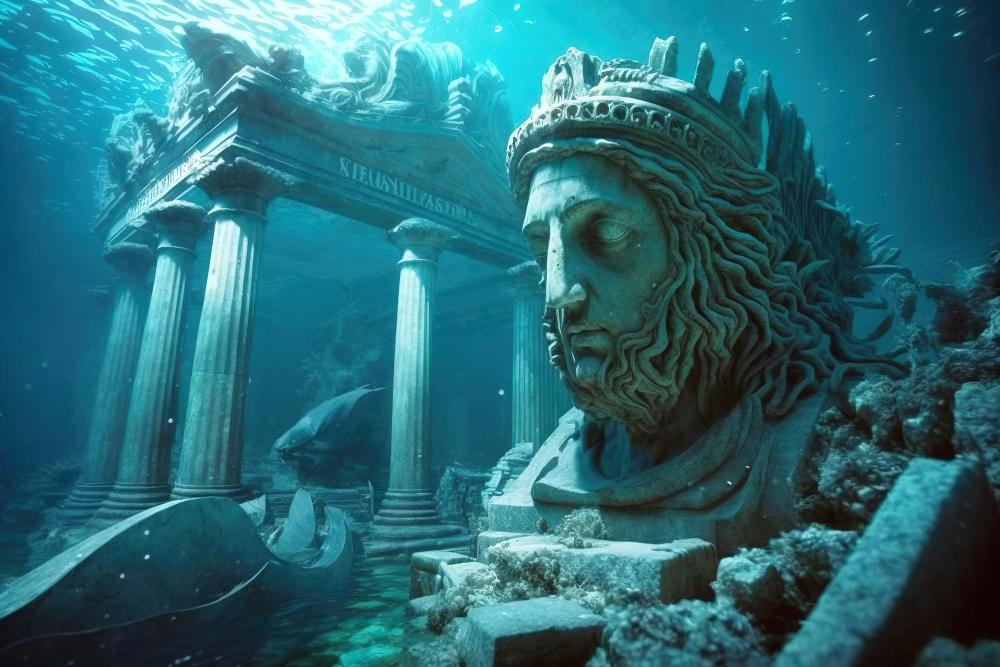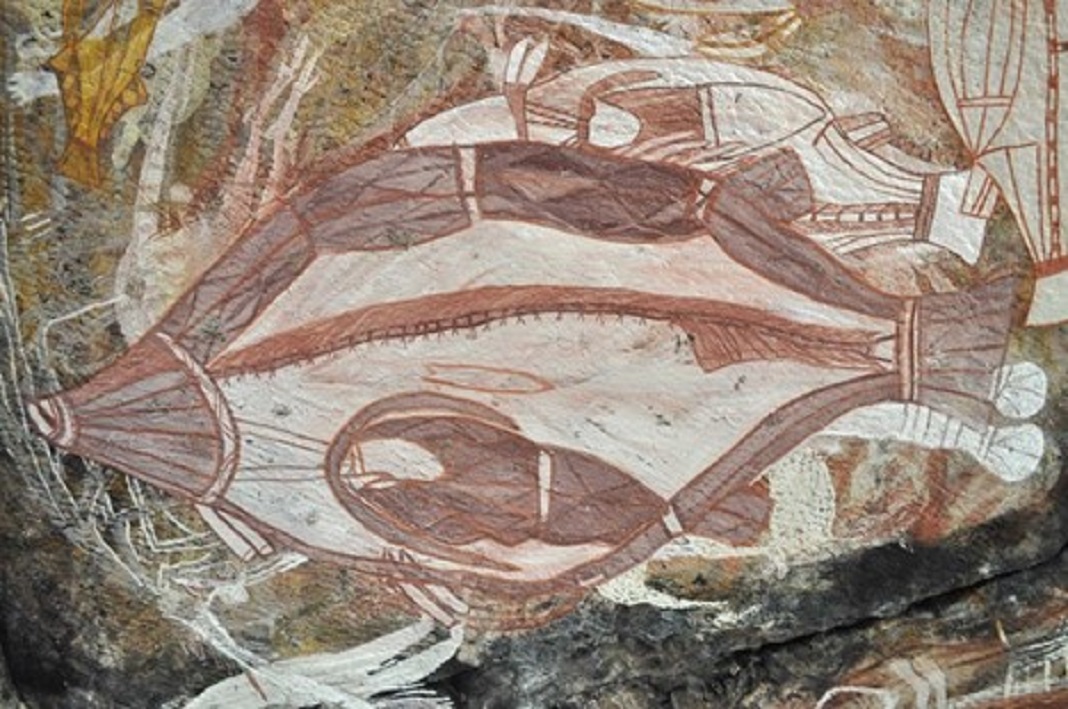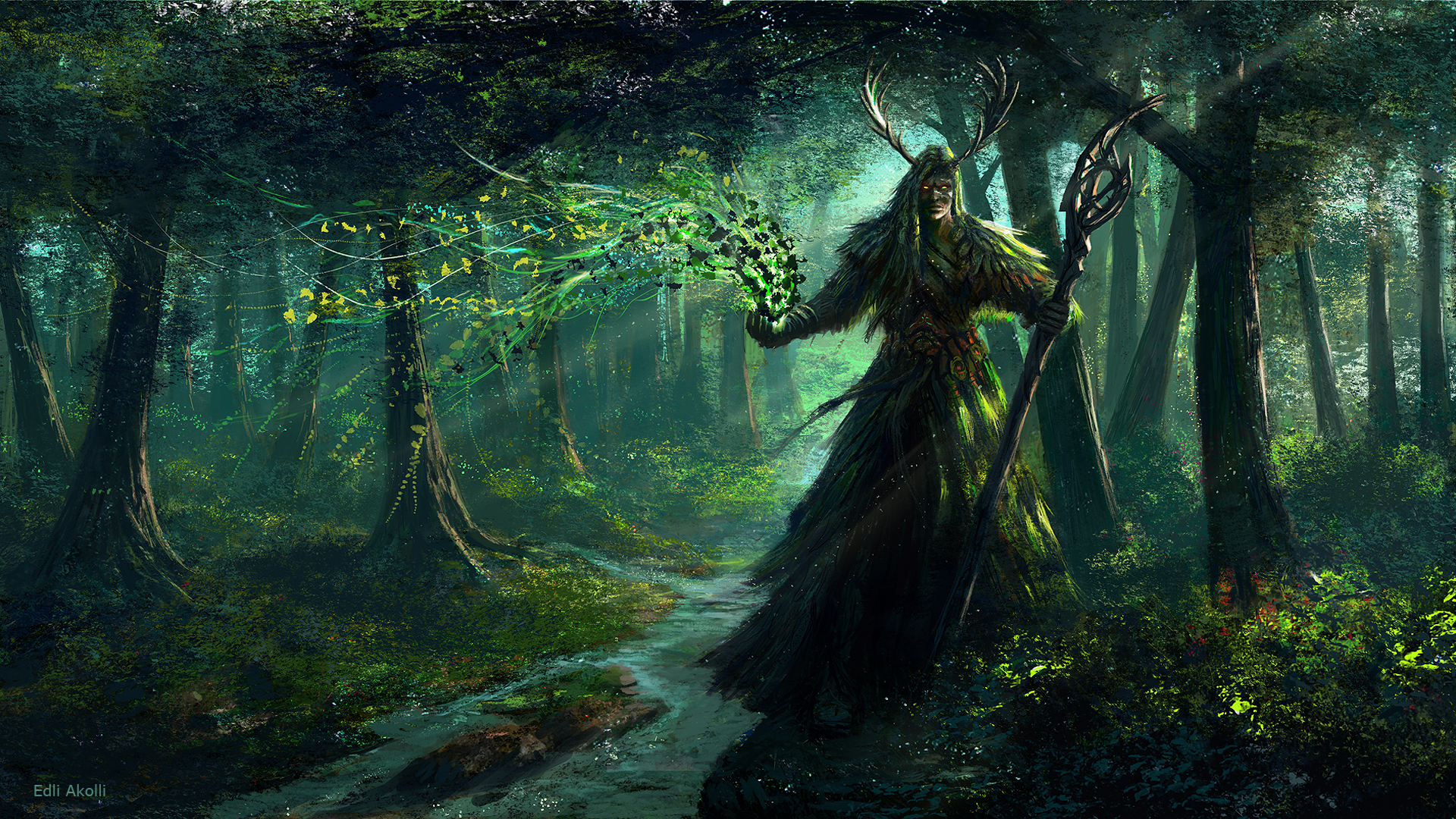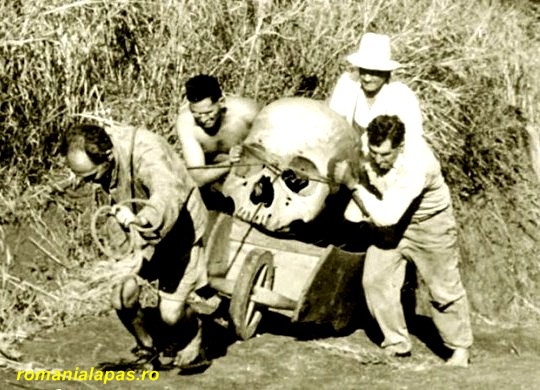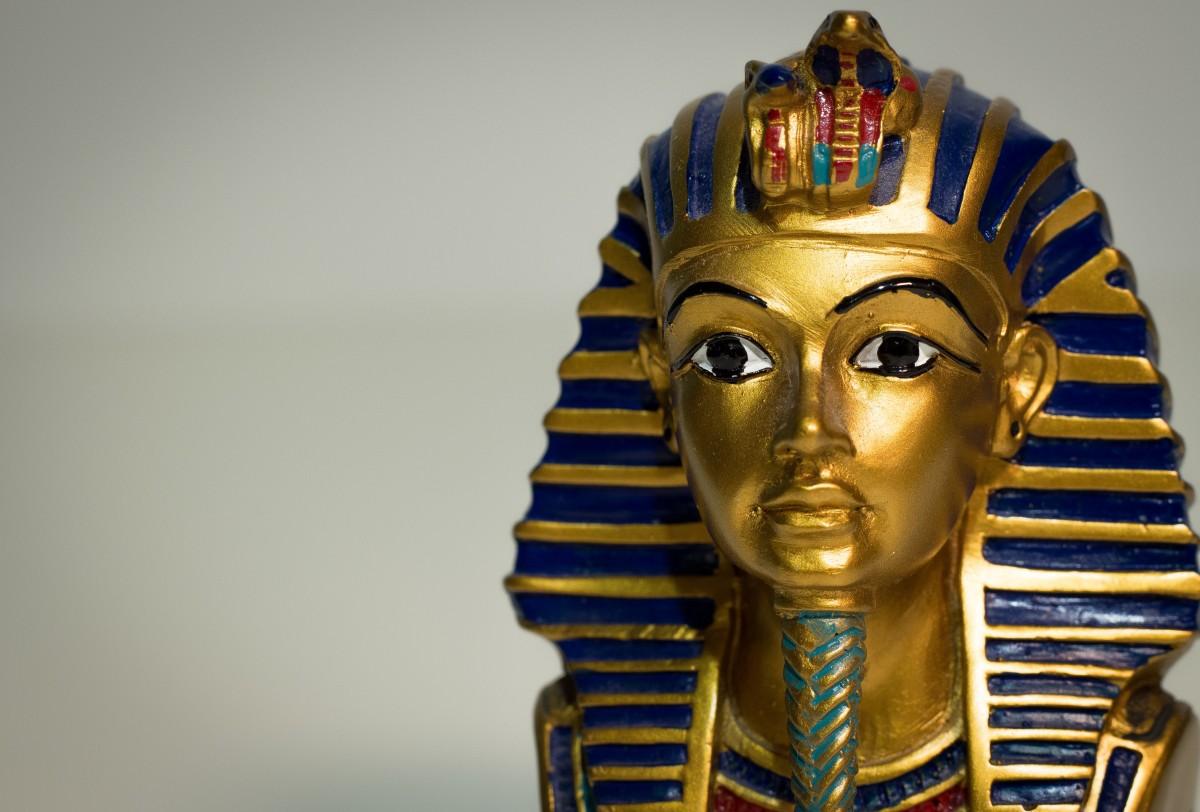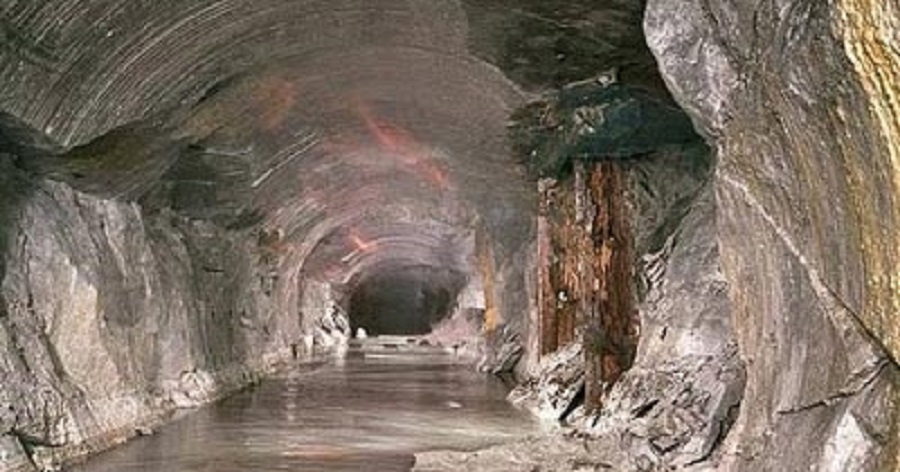The legend of Atlantis has captivated human imagination for centuries. The story, as first told by the ancient Greek philosopher Plato around 360 B.C., speaks of a utopian society, a land of immense wealth and technological prowess that eventually sank into the ocean, lost forever. But was Atlantis a real place or just a figment of Plato’s vivid imagination? To answer this question, we need to delve into ancient texts, archaeological findings, and modern hypotheses.
The Source: Plato’s Dialogues
The earliest mention of Atlantis can be traced back to two works by Plato: “Timaeus” and “Critias.” According to Plato, Atlantis was a naval power situated “beyond the Pillars of Hercules” that conquered parts of Western Europe and Africa. It was described as an advanced civilization that ultimately incurred the wrath of the gods and was submerged into the ocean.
Although many regard Plato’s account as a myth or allegory, there are those who point out that his other works have a basis in reality, thus providing a smidgen of plausibility to the tale of Atlantis. However, no other ancient text corroborates Plato’s account, which makes it difficult to definitively say whether Atlantis existed based on his narratives alone.
Archaeological Evidence
Archaeological efforts to locate Atlantis have spanned the globe—from the Mediterranean to the Caribbean and even to Antarctica. Various locations have been proposed as the possible resting place of this lost civilization, including Santorini in Greece, which was devastated by a volcanic eruption around 1600 B.C., and the Caribbean Sea, where underwater formations like the Bimini Road have stoked imaginations. However, none of these sites have produced evidence solid enough to verify the existence of Atlantis.
Scientific Skepticism
The scientific community largely dismisses the existence of Atlantis as a real historical place. Geologists and oceanographers argue that there is no mechanism that could cause an island or continent to sink abruptly, as described in Plato’s account. Furthermore, extensive undersea mapping has failed to identify any landforms that would match the description of a sunken continent.
Cultural Impact
Regardless of its actual existence, the concept of Atlantis has had a lasting impact on literature, movies, and even theories about extraterrestrial life. The narrative often serves as a cautionary tale of the abuse of power and technology, a trope employed in various works of fiction and speculative theories.
Alternate Theories
Some scholars posit that Atlantis was inspired by real events that were then embellished over time. One hypothesis suggests that the Minoan civilization, which thrived on the island of Crete until its sudden decline, could have inspired the story. Evidence of a powerful civilization and the eruption of the Thera volcano, which led to a tsunami, could have been passed down through generations and eventually morphed into the legend of Atlantis.
A Myth or a Real Place?
The lack of tangible evidence makes it difficult to conclusively affirm the existence of Atlantis. Despite numerous explorations and the advancement of technology, nothing concrete has been discovered that could substantiate the claims made by Plato over two millennia ago.
However, the enduring allure of Atlantis is not in its factual basis but in its philosophical undertones—a utopia that vanished due to its hubris, serving as a cautionary tale for civilizations to come. While the chances of discovering Atlantis are slim, the legend will likely continue to fascinate and inspire wonder, as it has for centuries.
The quest for Atlantis, whether futile or not, compels us to question the boundaries between myth and history, between what is conceivable and what lies beyond the realm of human understanding. Thus, while Atlantis may not have existed in the form that Plato described, it exists as a potent idea, a representation of both human aspiration and human folly.
Theories About the Existence of Atlantis: From Rational Explanations to Outlandish Speculations
The quest to uncover the reality of Atlantis has led to an assortment of theories that range from carefully considered historical hypotheses to purely speculative notions. Some theories have academic backing, while others find favor in the realms of pseudoscience and popular folklore. Here is an exploration of the most prominent theories surrounding the enigmatic lost continent.
The Mediterranean Hypotheses
Minoan Crete Theory
One of the most widely discussed theories places Atlantis in the Mediterranean, suggesting that the Minoan civilization on the island of Crete was the real Atlantis. The Minoans were a maritime power with advanced architecture and art, fitting Plato’s description in many ways. The volcanic eruption of Thera and the resulting tsunami could be the cataclysm that led to the civilization’s downfall, closely resembling the fate of Atlantis.
Santorini Hypothesis
Closely related to the Minoan theory, some scholars believe that Atlantis was actually the island of Santorini, which was decimated by one of the largest volcanic eruptions in human history around 1600 B.C. The island’s destruction had a ripple effect on surrounding civilizations and could have inspired the tale of Atlantis.
South American Hypotheses
Andean Atlantis
Some researchers have looked towards South America for the origins of Atlantis. They point to ancient civilizations like the Tiwanaku near Lake Titicaca in modern-day Bolivia. Proponents argue that the region’s complex irrigation and advanced agricultural methods align with Plato’s description of Atlantis.
Caribbean Theories
Bimini Road
In the 1960s, a formation known as the Bimini Road was discovered underwater near the Bahamas. Some believed these limestone blocks to be the remnants of an ancient civilization, possibly Atlantis. However, geological studies later showed that the formation is natural and not man-made.
Other Outlandish Theories
Antarctica
In the realm of far-fetched theories, some claim that Atlantis is actually located in Antarctica. The hypothesis suggests that the continent was ice-free and home to an advanced civilization. However, there is no credible evidence to support this claim, and it contradicts known geological and climatic history.
Extraterrestrial Atlantis
The most speculative theories suggest that Atlantis was not of this Earth. Proponents argue that the technological advancements of Atlantis, as described by Plato, are indicative of extraterrestrial influence. However, this theory is purely speculative and not supported by any credible evidence.
Mythological and Spiritual Theories
A Metaphor for Spiritual Enlightenment
Some believe that Atlantis is not a physical location but a metaphor for a state of spiritual enlightenment and utopia. The civilization’s downfall serves as a warning against spiritual degradation.
A Collective Memory
Carl Jung, the Swiss psychoanalyst, considered the tale of Atlantis as a “collective memory,” a myth emanating from the unconscious mind shared by humanity. This theory places Atlantis in the realm of symbolism rather than reality.
The theories surrounding Atlantis are as diverse as they are intriguing. While some have a basis in archaeological and historical findings, others veer off into the realms of speculation and pseudoscience. Despite the myriad theories, none have provided conclusive evidence to solve the enigma of Atlantis.
The enduring fascination with Atlantis suggests that, whether or not it ever existed, it serves multiple purposes—as a cautionary tale, as an inspiration for exploration, and as a probe into the boundaries of human understanding and imagination. Each theory, no matter how credible or far-fetched, contributes to the enduring allure and ongoing discussion of this legendary lost civilization.
Top 10 Famous Books About Atlantis
The legend of Atlantis has inspired a plethora of books that delve into its history, theories, and mythology. From historical accounts to fictional narratives, these books aim to explore the enigma that surrounds this lost civilization. Here are the top 10 famous books that have made significant contributions to the discourse on Atlantis:
- “Timaeus and Critias” by Plato
The original texts that started it all, these dialogues by Plato are the source of the Atlantis story. Though not entirely dedicated to Atlantis, they provide the earliest and most comprehensive account of this mythical land.
- “Atlantis: The Antediluvian World” by Ignatius L. Donnelly
Published in 1882, this book is often considered the starting point of modern interest in the Atlantis legend. Donnelly argues that all known ancient civilizations were descended from Atlantis.
- “Fingerprints of the Gods” by Graham Hancock
In this controversial book, Hancock suggests that there was a high civilization lost to history, which could have been Atlantis. The book taps into archaeological anomalies to build its case.
- “The Hunt for Atlantis” by Andy McDermott
This is an action-adventure novel that centers around the hunt for Atlantis. It’s the first in a series by Andy McDermott and combines archaeological intrigue with modern-day adventure.
- “Atlantis Found” by Clive Cussler
A Dirk Pitt adventure, this fictional story by Clive Cussler incorporates the Atlantis myth into a tale involving ancient artifacts, Nazi plots, and underwater expeditions.
- “The Lost Continent” by C.J. Cutcliffe Hyne
This 1900 novel portrays Atlantis as a highly sophisticated civilization ruled by a cruel oligarchy. The story is one of the earliest novels to popularize the Atlantis myth.
- “The Secret of Atlantis” by Otto Muck
Scientist Otto Muck delves into the Atlantis legend with a series of hypotheses, including the possibility of Atlantis being destroyed by a comet. The book was first published in 1956 and has been translated into multiple languages.
- “Meet Me in Atlantis: My Obsessive Quest to Find the Sunken City” by Mark Adams
Travel writer Mark Adams explores the modern hunt for Atlantis by meeting with various experts and embarking on a global quest. The book is a mix of travelogue, history, and mystery.
- “The Mystery of Atlantis” by Charles Berlitz
Written by Charles Berlitz, known for his work on the Bermuda Triangle, this book dives into the various theories surrounding Atlantis and attempts to validate its existence through a variety of angles.
- “Atlantis: Three Tales” by Samuel R. Delany
This book is a collection of stories that take the Atlantis myth into different directions, including its influences on modern civilization and its allegorical implications.
These books represent a diverse range of perspectives on Atlantis, from the scholarly to the fictional. Whether you’re interested in the history, the theories, or simply a good story, there’s likely a book about Atlantis for you.

